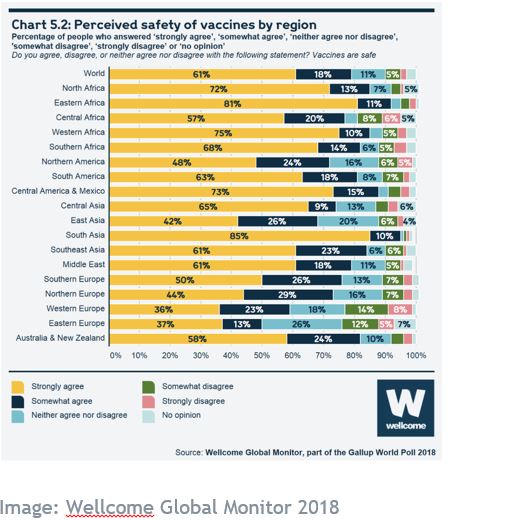 By
Ravi Kumar S
By
Ravi Kumar S
Universally, there’s the belief that the availability of a Covid-19 vaccine will break the spell of suffering and we can finally rid ourselves of our masks. But the last mile from ‘vaccine’ to ‘vaccination’ must be
trekked before our world can truly start to become safe, and that journey is fraught with challenges.Some of these problems, though complex, are well-defined – like connecting the dots between vaccine providers, distributors and consumers, nurturing a cold supply chain framework or even streamlining the broad spectrum of vaccine management from prioritization and administration, all the way to adverse effect monitoring. In fact, we recently announced a software solution that does exactly that. Then again, not all problems, in this context, are as well-framed.
For example, public hesitancy towards vaccination, brought on by a fear of side-effects, is rampant. In a June 2020 survey, conducted by the World Economic Forum’s COVID Action Platform, only 71.5 per cent of participants reported that they would be very or somewhat likely to take a COVID-19 vaccine. With experts estimating that at least 70 per cent of the population will need to be immune to the virus to stop community spread, building and sustaining vaccine confidence has never been more important.
Then there are people who are not vaccine-hesitant, but who do not have the healthcare coverage needed to pay for or subsidize immunization. This is not hard to imagine when we think back to the early days of the pandemic, and the severe shortage of COVID testing at that time. People – especially from marginalized groups – stood in interminable lines waiting their turn or – worse – had no access to tests at all, while a privileged few accessed testing, sometimes as frequently as every day. Today, many voices decry the wealthier countries reserving vaccines to increase the chances of protecting their own population. Duke Global Health Innovation Center research puts the number of those reserved doses at a whopping 9.8 billion. This is despite every expert pointing to the fact that the nature of the pandemic is such that no one is really safe unless everyone is safe. Even if we refuse as a collective to recognize it, clearly this is the moment to collaborate and prioritize distribution to protect at-risk populations first so that they don’t aggravate the spread and endanger all our lives.
It does seem fair, then, to conclude that solving for the deficit in trust, fairness, discipline, equitable sharing and collaboration should be as much a focus as producing and distributing a viable vaccine.




No comments :
Post a Comment